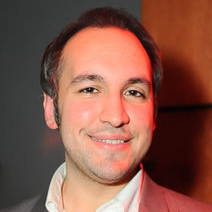Tech Hub Planned for Former Midtown Sears to Anchor Houston's Innovation Corridor
When Houston failed to make Amazon’s short list of potential locations for its second headquarters, local leaders called it a “wake up call.” Houston had touted its Innovation Corridor—a stretch of the city that connected its universities, commercial centers, and cultural destinations—as a big draw for Amazon and other tech companies. However, even though Amazon won’t make Houston the spot for its HQ2, the city is moving forward with making itself a more attractive destination for businesses, particularly technology-oriented businesses. In early April, Houston Mayor Sylvester Turner announced plans to turn a former Sears into an “Innovation Hub".
Transforming Outdated Retail into a Tech Hub

For years, Houston’s Midtown Sears location has been in decline. It finally closed in January 2018 following a long period of liquidation sales. However, the departure of Sears left a valuable piece of Midtown property unoccupied. Big retail centers are shutting down across the country, but cities are finding new ways to use those empty spaces.
For Houston, that means converting the former Sears into an anchor for the Innovation Corridor. The Rice Management Company will be investing approximately $100 million toward converting the former Sears location into the Innovation Hub, according to Bisnow. The conversion will turn over 200,000 square feet of floor space into co-working spaces, meeting areas, offices, classrooms, restaurants, and other amenities.
This joint project will bring together Rice University with the City of Houston and other business leaders in the conversion of the midtown space. Other participants supporting the hub’s completion include many of the city’s other universities, such as the University of Houston and Texas Southern University. These universities will participate as initial tenants on the property and investors in the the hub. They will also be able to use the space for classes.
The first phase of the Innovation Hub is projected to be complete by 2020, when the Texas Medical Center begins using it for various digital initiatives, according to Bisnow. City leaders hope that the Innovation Hub will join the larger Innovation Corridor as part of Houston’s efforts to foster the sort of startup ecosystem conducive to tech-oriented entrepreneurs and organizations in order to catch up to places like Chicago and Silicon Valley.
Houston Neighborhoods Stand to Benefit

The effects of the conversion will be felt first in Midtown, whose southern edge has lagged in development when compared to parts of the neighborhood that are further north. While much of the neighborhood has flourished, this stretch of Midtown close to Highway 69 has seen little of the commercial or residential development that has made the rest of the area a success. The Innovation Hub stands to change that by revitalizing the economy in the surrounding area.
Other neighborhoods that may benefit could include the nearby Third Ward, located just over the highway. The Third Ward has lagged economically behind the rest of Houston, but it has recently been the focus of revitalization efforts that include new residential developments, tax incentives to lure business, and the recent renovation of Emancipation Park. Having the Innovation Hub next door would only enhance the attractiveness of the area even more.
Other surrounding neighborhoods that would benefit might include Montrose and the Museum District. Montrose is a historic district that serves as home to the prestigious University of St. Thomas, one of the city’s premier universities, as well as the Menil Collection, a popular destination for art lovers. The Museum District, meanwhile, is home to multiple museums that include the Museum of Fine Arts, the Holocaust Museum, and the Museum of Natural Science. It’s also home to the popular Hermann Park and Houston Zoo. The Innovation Hub will sit at the center of some of the city’s most popular cultural, educational, and outdoor destinations while also helping to drive new economic development into the heart of the city.

